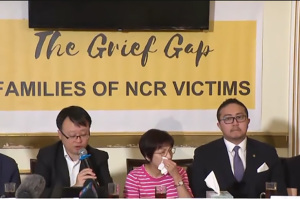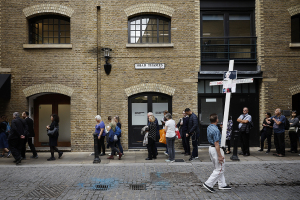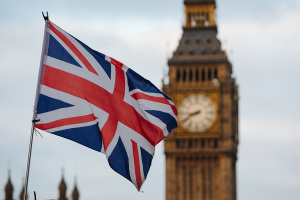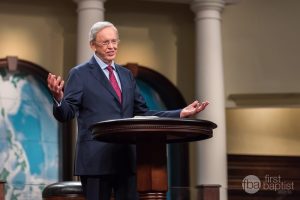Americans placing more emphasis on hobbies, money and community, less on religion: study

As the value Americans place on religion has declined over the last two decades, an increasing share of society now ranks community activities, hobbies or recreational activities, money, friends and health as extremely or very important priorities in their lives, while family maintained its rank as the highest priority of all, the results of a new Gallup survey show.
The results of the survey, conducted June 1-22, with a random sample of 1,013 adults living in all 50 U.S. states and the District of Columbia, show that 96% of Americans ranked their family as extremely or very important. This same share of Americans ranked their family as extremely or very important using data from a survey conducted between 2001 and 2002.
While religion fell by 7%, from 65% to 58% over the comparison period, all other priority areas measured showed increases.
More than half of Americans now say community activities and hobbies or recreational activities are now extremely or very important to them. But more than 20 years ago, this was not the case.
The data show that only 32% of Americans said community activities were extremely or very important at the end of the survey period in 2002. But in 2023, that share jumped to 55%, reflecting a 23% increase in how Americans value community activities. This was the largest increase in any priority highlighted in the survey.
Hobbies or recreational activities increased as a priority by 13% over the period from 48% to 61%; money increased from 67% to 79%; work increased from 74% to 83%; the priority placed on friends increased from 74% to 78%; while the focus on health increased from 90% to 92%.
“Somewhere along the way, Americans’ personal priorities have shifted in notable ways. They now value parts of their lives more than they did in 2001-2002, particularly their community activities, but also their hobbies and recreational pursuits, their money, and their jobs,” wrote Lydia Saad, director of U.S. social research at Gallup.
Several studies over the years have pointed to America’s religious decline.
In "Meaning in Modern America," a 2018 study released by the Institute for Family Studies, psychology professor Clay Routledge highlighted how most Americans, including those who believe in God, say their main source of meaning in life comes from their relationships with others, such as family and friends instead of religion.
"American culture is changing in a number of ways that have potentially powerful implications for people's efforts to find and maintain meaning in life. Americans are waiting longer to get married and have children, and are having fewer children,” Routledge said. “Feelings of social disconnection and loneliness are on the rise, even as people are increasingly 'connected' via social media.”
The shift in the importance of religion in American society also comes with significant implications for society.
Should religion, including Christianity, decline to a point where the American population has no religion at all, societal welfare could suffer too, a 2022 analysis by the Pew Research Center shows.
Brian Grim, who is president of the Religious Freedom & Business Foundation, and his daughter, Melissa Grim, who is a senior research fellow and project director at the foundation, published a study in 2016 showing how religion contributes some $1.2 trillion annually to the socio-economic value of the American economy.
They followed up that study with another in 2019 published in the Journal of Religion and Health that valued the work of nearly 130,000 congregation-based substance abuse recovery support programs in the U.S. at up to $316.6 billion.
“We find that these faith-based volunteer support groups contribute up to $316.6 billion in savings to the U.S. economy every year at no cost to taxpayers,” the researchers recalled in a brief published by the Religious Freedom & Business Foundation.
“While negative experiences with religion (e.g., clergy sex abuse and other horrendous examples) have been a contributory factor to substance abuse among some victims, given that more than 84% of scientific studies show that faith is a positive factor in addiction prevention or recovery and a risk in less than 2% of the studies reviewed, we conclude that the value of faith-oriented approaches to substance abuse prevention and recovery is indisputable,” they noted. “And, by extension, we also conclude that the decline in religious affiliation in the USA is not only a concern for religious organizations but constitutes a national health concern.”
Contact: leonardo.blair@christianpost.com Follow Leonardo Blair on Twitter: @leoblair Follow Leonardo Blair on Facebook: LeoBlairChristianPost





























